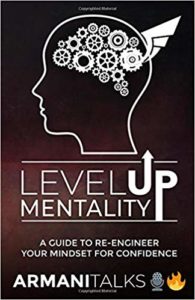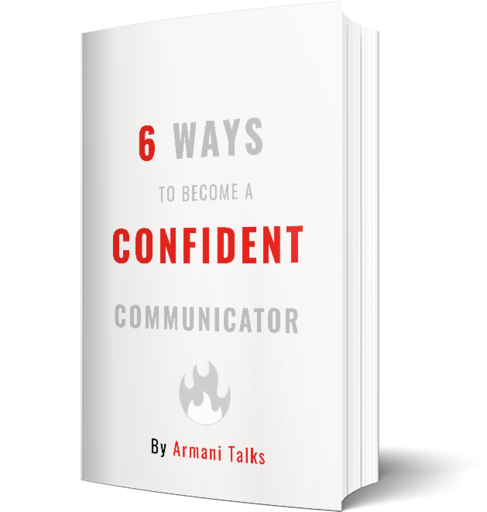What is Deliberate Practice and How to Do It
Imagine knowing a bunch of things but never putting the knowledge into action.
The reader who knows a lot but does little.
That’s not the way to live.
It’s sad and has the reader wasting time.
Much better to apply the information.
Leverage knowledge to lead to external changes.
That’s magic.
To apply what you learn, there are a few phrases that come to mind:
- Exponential progress.
- Deliberate practice.
Exponential progress is when tiny 1% improvements begin to add up.
It’s a marvel to see!
For the 1% improvements to add up, the reps need to have the mind present.
That’s the biggest difference from practice vs deliberate practice.
Allow us to learn how to deliberately do our reps.
Mindless repetitions will soon be a thing of the past.
Practice vs Deliberate Practice
For regular practice:
- The body is present while the mind is in la-la land.
For deliberate practice:
- The body and mind are present.
When the mind and body are both present, the likelihood of applying the information SKYROCKETS.
No longer is the knowledge only in the mind.
Now it’s spilling over to our nervous system as well.
How to Begin Deliberate Practice
To begin deliberate practice, it starts off with information.
Without the information, there are sloppy movements or no movements.
With information gathering, having the right mindset is key.
‘What is the right mindset??’
Consume with the intention of producing.
‘This is your breathtaking insight? Everyone does that!’
Not really.
The average consumer:
- Consumes with no intention (analysis paralysis).
OR
- Consumes with the intention of consuming more (pleasure-seeking).
This happens because they don’t know the difference between learning and doing.
- Learning = inputting information.
- Doing = outputting information.
So, consume information with the intent of doing.
Next question, where do you get the right information from?
For the sake of simplicity, my assumption with this blog is to assume you don’t have the money for a mentor or formal training.
So, use the internet.
Find 5-8 separate sources (where the people don’t know each other) and get a general feel for what they are saying.
Concepts which are repeated are the important concepts, aka: the fundamentals.
If you want to become a better storyteller and multiple sources on storytelling are saying:
- Consume a lot of stories (good and bad).
- Tell a lot of stories.
Well, those are the fundamentals!
Creating a Feedback System
Another thing that separates regular practice from deliberate practice is a feedback system.
‘Whoa, that sounds like an intimidating phrase.’
It’s not.
A feedback system allows us to see if we are headed in the right direction or not.
There are 2 types of feedback systems:
- Humans.
- Information technology.
Let’s say the person who is learning storytelling has gotten the concepts down.
Now they want to practice in public.
Well, they join a Toastmasters club and begin giving speeches.
Toastmasters provides evaluators for each speaker.
In this case, a human is serving as the feedback system.
The evaluator will say:
- What the speaker did right.
- What the speaker could improve.
- And reinforce what the speaker did right.
In addition to that, the Toastmasters club also records the speeches.
The storyteller goes on YouTube the next day to see his speech uploaded.
From there, he is watching himself on tape to see what he is doing well and where he falls flat.
In this case, information technology (camera, YouTube) is serving as the feedback system.
‘From your example Armani, the storyteller used a human and information technology as feedback systems. I can use both?’
Depending on the skillset, you can absolutely use both!
How to Keep the Mind Present
The mind is our friend and foe when it comes to deliberate practice.
It’s our foe because the mind likes us to be distracted.
Give it an inch, and it will try to take a mile.
It’s our friend because the mind is reprogrammable.
One of the best ways to keep the mind in check is by using a timer/stopwatch combo.
In the Toastmasters example, the speaker is timed for their speech.
All Toastmasters clubs have a timer position where a member sees if the speakers are following the time limits.
Therefore, the storyteller is forced into accountability.
Let’s say you don’t have an external timer position holding you accountable.
Let’s switch the example from giving Toastmasters speeches to recording YouTube videos.
Now what?
First, I recommend using the stopwatch in the initial stages.
Gather some data to see how long it roughly takes to record a YouTube video.
Over a couple of weeks, you collect the data of:
- Video 1 – 20 minutes to completion.
- Video 2 -19 minutes to completion.
- And video 3 – 28 minutes to completion.
We have data on how long it takes to roughly record a video.
From there, we can average those times to activate our timer duration.
(20+19+28)/3 = 22.3
Set a timer for roughly 22.3 minutes, give or take 5 minutes.
Something about knowing (and possibly seeing) a timer counting down makes the mind hyper-focused.
This allows us to not only be physically present
But mentally present as well.

Constant Fine-Tuning
The final part of deliberate practice is to always be fine-tuning.
Just when a person thinks they are on the verge of figuring it out, they are confused again.
Confusion is bad when nothing is being done about it.
Confusion is great when something is being done about it.
During deliberate practice, there will be random quirks that come up.
The speaker who is going to Toastmasters may notice over time that they run out of breath while speaking.
Why?
From further inspection, they see that their shirt is too tight.
Ahh that makes sense.
A tight collar reduces breathing capabilities.
BOOM. The finetuning opportunity has been capitalized on!
For more practical insights on how to learn better, become smarter, and practice efficiently, be sure to check out the:
This book teaches you how to:
- Improve memory.
- Build productive habits.
- Problem solve effectively.
- Apply the scientific method to pick up knowledge.
- Effectively use the internet.
- Teach others.
And much more!
GET HERE:
– ArmaniTalks 





